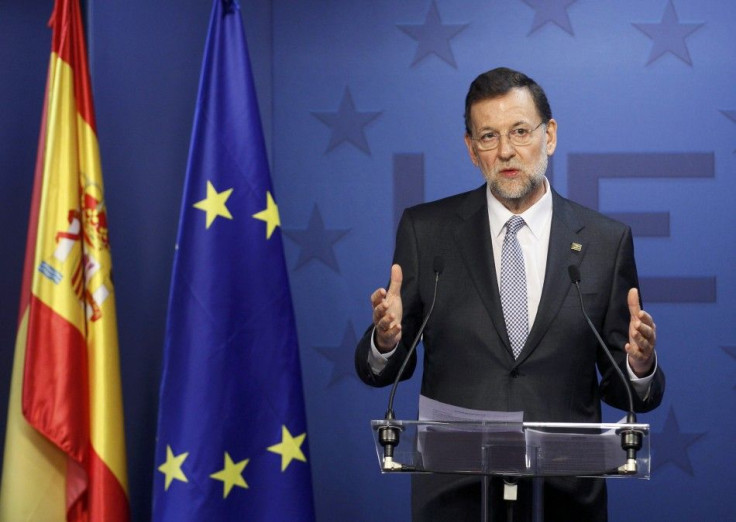Spain May Miss 2012 Deficit Target

Spanish Prime Minister Mariano Rajoy said Spain won't meet its 2012 deficit target of 4.4 percent of gross domestic product (GDP), opting instead for a more-lenient target than it promised to the European Union three years ago.
Spain said Friday its target is now 5.8 percent of GDP. This isn't the first time Spain has missed its intended target for public deficit - the shortfall between government spending and revenue - and now the country may run the risks of sanctions from the EU. In 2011, the country largely overshot the 6 percent deficit target and instead reached 8.5 percent.
Spain's decision to defy the previously set deficit target coincides with the signing of the EU fiscal stability pact, which invokes strict rules for holding EU members accountable for their debt management. Such defiance threatens the legitimacy of the pact, only casting more doubt on the euro zone's recovery.
It's the first step for undermining the credibility of a system which has not even had time to accumulate any credibility capital, said Thomas Klau, head of the European Council on Foreign Relations, in Paris.
Spain is the EU's fourth largest economy and its unilateral decision places the country at the heart of the euro zone crisis, feeding investors' concerns Spain might follow Greece, Portugal, and Italy in requesting a bailout.
Spain's unemployment rate is about 22.9 percent, and growth prospects have deteriorated, spurring social unrest throughout the country. The International Monetary Fund said forecasts show Spain's economy is expected to sink into another recession and contract by 1.7 percent this year.
Given economic strains, Rajoy said he found it only rational to aim for a less ambitious deficit target. I'm backing austerity and aim to reduce the deficit from 8.5 percent to 5.8 percent; that's significant austerity, Rajoy said at the EU summit in Brussels.
In allowing itself a more flexible deficit target, Spain has chosen to cut costs by €30 billion ($39.6 billion) versus € 40 billion ($52.8 billion).
Rajoy maintained that Spain would still be able to reduce its trade deficit to the EU-mandated figure of 3 percent by 2013. Credit ratings agencies including Fitch said they believe Spain's decision Friday will allow it to hit the 3 percent target.
Spain's Budget Minister Cristobal Montoro said he also believes the EU would reason similarly given the changed economic situation. Spanish officials previously expected to see the economy grow by 2.3 percent.
I am convinced that Brussels and all international investors will recognize the effort being made by the government and the Spanish people, said Montoro.
At the Brussels EU summit, Rajoy made it very clear the decision was solely Spain's and effectively dismissed EU reactions.
I'm not going to tell the other presidents or heads of state about the deficit figure that will be included in our budget. I don't have to. It's a sovereign decision. I'll tell the (European) Commission in April, said Rajoy.
In response to Spain's move, the EU could either agree to accept the less austere deficit target or it could bring sanctions and fines against Spain of up to 0.2 percent of GDP.
© Copyright IBTimes 2025. All rights reserved.





















